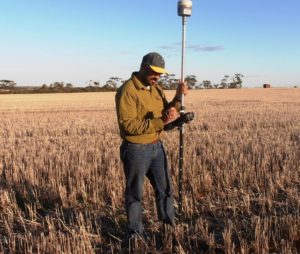
As the world’s population heads for 9 billion by 2050, restructuring the approach to food production and supply is vital.
Flinders School of the Environment research fellow Dr Harpinder Sandhu is part of a global United Nations initiative aiming to radically reform agricultural systems in a much more sustainable direction – all to feed the world and saving the planet.
With climate change challenging agricultural production, as evident in southern Australia in recent decades, the UN project has researchers around the world investigating better management of environmental assets, biodiversity and ecosystem services.
“We need to move our food system in a new direction,” says Dr Sandhu, who is launching an innovative new model for assessing the true cost of food production at the True Cost of American Food Conference in San Francisco (14-16 April).
The model includes the input costs along with the environmental and social impact of agricultural production against the final price paid for the farm goods, with the true costs and benefits of farming rarely reflected in what is paid for food at the supermarket in monetary terms.
For example, Dr Sandhu says ‘cheap’ minced beef might have a lot of hidden costs, such as intensive feedlot use of grains and water, greenhouse gas emissions, damage to the soil or even worker exploitation. More sustainable food production should include better environmental and employment inputs, not always reflected in the monetary value of the product.
Dr Sandhu is part of the UN Intergovernmental Science-Policy Platform on Biodiversity and Ecosystem Services (IPBES) program and The Economics of Ecosystem sand Biodiversity for Food and Agriculture (TEEB AgFood) project which is looking at reforming current food-production systems.
The program is striving to boost agricultural production and reduce food waste by turning the focus back on to more sustainable practices.
Back in South Australia, Flinders School of the Environment researchers have been looking into the state’s agricultural practices, which Dr Sandhu says would also benefit from the radical new approach to revaluing ecosystem (natural) resources on farms.
“South Australia has a key economic focus on its premium food and wine industry, which can grab a greater competitive advantage in local and overseas markets by adopting some of the true-cost accounting principles to reflect their environmental credentials,” Dr Sandhu says.
Water restrictions, soil quality and climate change are already affecting existing production, Flinders School of the Environment field work has found.
A Youtube documentary made by Flinders Vietnamese student and journalist Tinh Lai last year shows how climate change is affecting agriculture and farming communities along Goyer’s Line in South Australia’s Mid and Far North region.
“It raises concerns about the effects of hotter, drier weather on food and wine industries, pointing to a southwards move in the historic Goyder’s Line (the ‘line’ across SA indicating where rainfall is considered sufficient for cropping),” Dr Sandhu says.
This also should be factored into the state’s ability to lift and maintain its agricultural outputs, one of the key planks in South Australia’s economy, he says.

